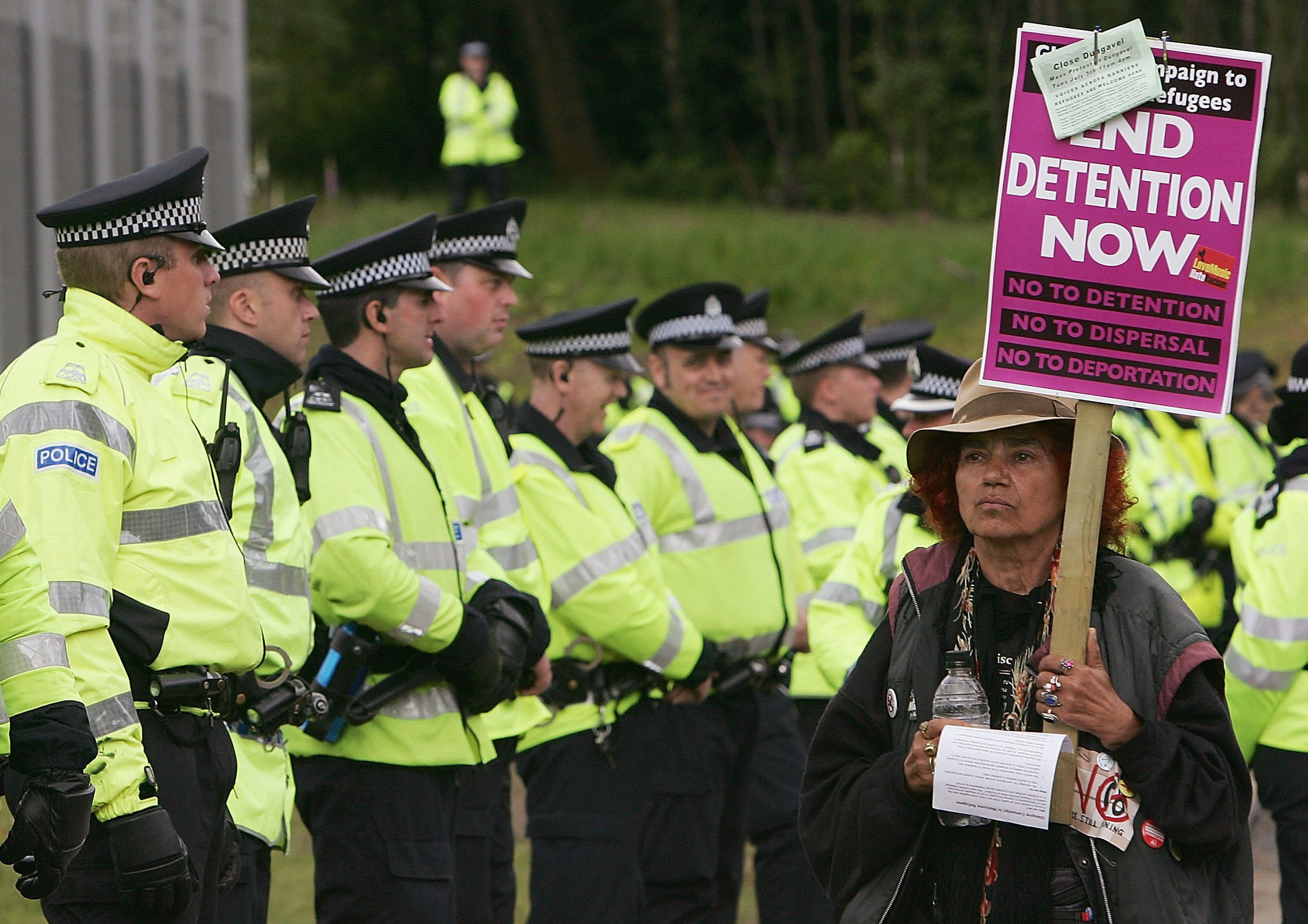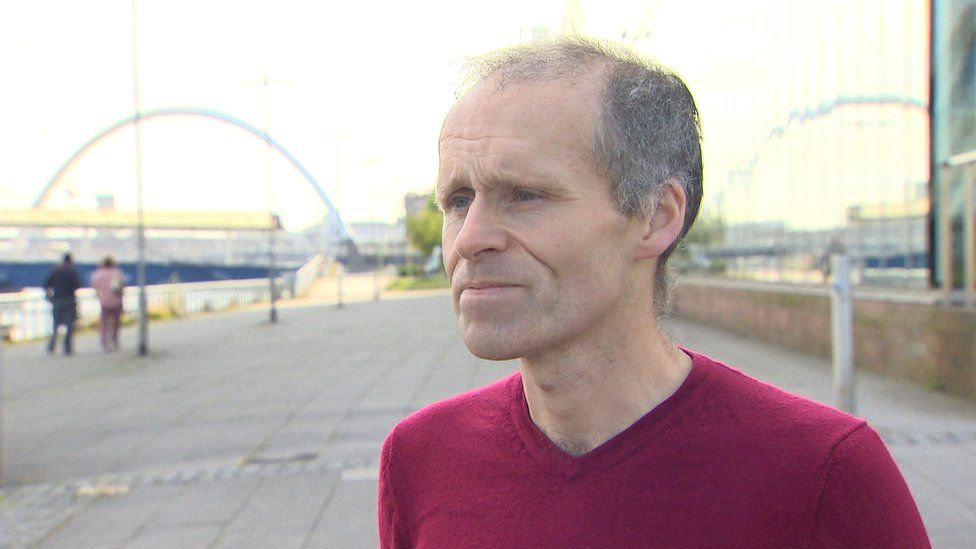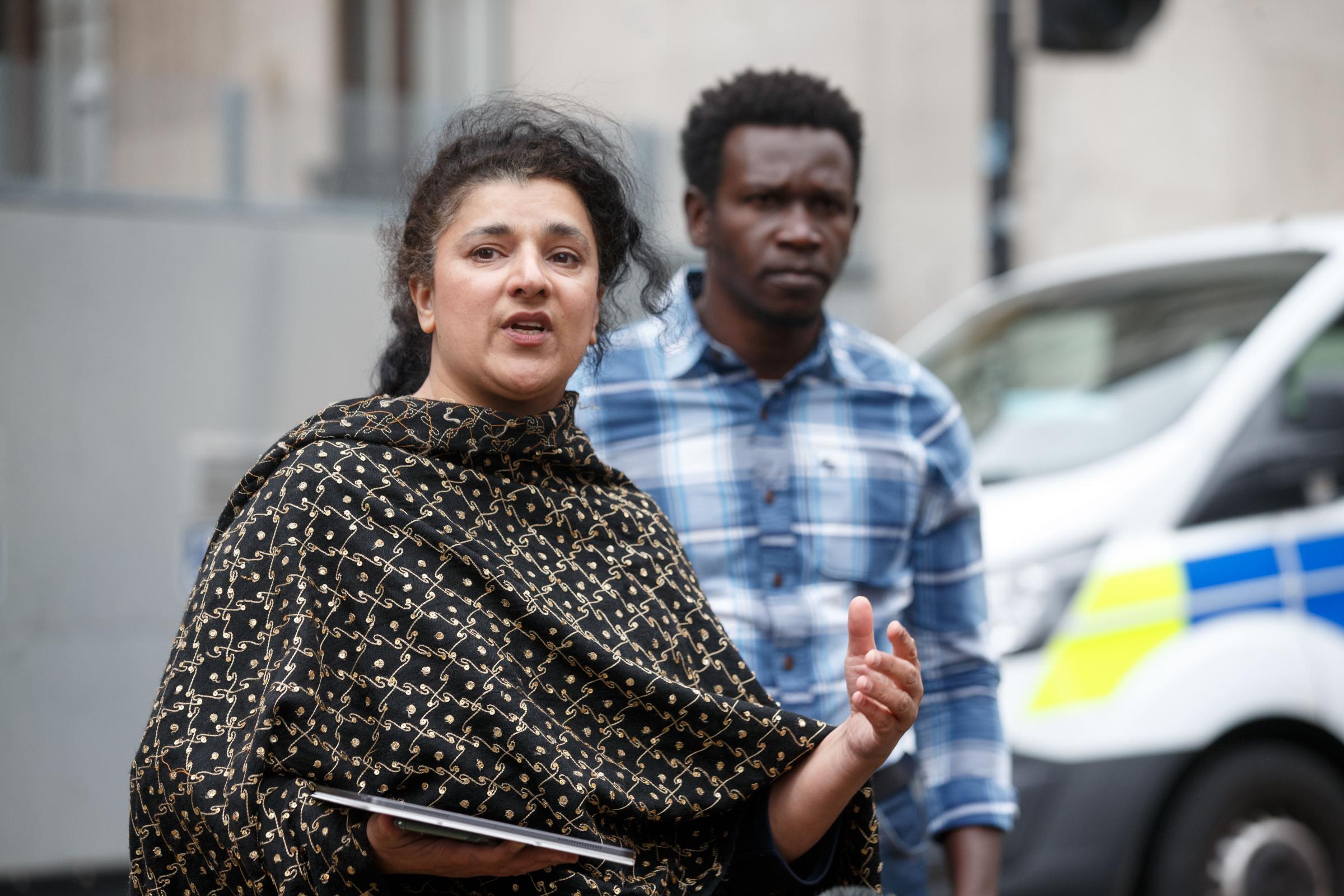

MORE than 3000 people – including asylum seekers – have been held in police cells for up to 72 hours under immigration powers over the past five years, new figures reveal.
The latest statistics, released under freedom of information legislation, show the majority of people held in police cells for “immigration purposes” are from countries such as Iraq, Iran and Syria – the most common countries refugees in Scotland arrive from.
Others come from countries from which trafficking survivors are commonly detected, including Albania and Vietnam.
People can be detained in police cells for “immigration purposes” – which is an administrative rather than criminal matter – when officers have a “reasonable cause” to believe they do not have permission to reside in the UK. Police must then contact the Home Office, which will issue a detention order.
Those who come to police attention can include newly arrived asylum seekers, who are increasingly advised to seek help at a police station.
But charities said the use of police cells was “totally inappropriate” and could be retraumatising for those who had experienced torture or violence and trafficking survivors.
They also warned that figures could increase due to the tightening of immigration rules under the current Conservative Government, which will see more claims for asylum judged to be “inadmissible” and more migrants, including refugees, left destitute.
The Scottish Government must ask tough questions about Scotland’s de facto role in immigration detention, they said, and ensure greater transparency around Police Scotland’s role.
The latest figures show a total of 3254 people have been held in Scottish police cells for “immigration purposes” from April 2017 to March 2022.
In 2021-22, 738 people were detained in this way. They included 129 people from Iran and 105 from Sudan, both amongst the top countries of origin for both asylum seekers and for referral for trafficking protection in Scotland.
Those held for immigration reasons include 77 Syrians, as well as those from countries where trafficking survivors are most commonly identified under the Scottish National Referral Mechanism (NRM), including Romania, Albania and Vietnam.
Of last year’s total, 515 people were held for under 24 hours, 211 for between 24 and 48 hours, and 11 for 48-72 hours. One person was held in Greenock police station for more than 72 hours.
Figures covered 20 police stations from Stranraer to Aberdeen, though the majority were held in Glasgow.
Unlike in criminal cases, where people must normally be released or charged within 12-24 hours, there is no time limit for the use of immigration powers. But Police Scotland said it was “generally a short-term arrangement”.
Numbers fell slightly during 2020-21, when lockdown restrictions due to the pandemic were widespread. Only 477 people were held for immigration purposes in that period, including 145 for 24-48 hours, five for 48-72 hours, and one for more than 72 hours. Countries of origin were similar to those most commonly held last year.
In 2019-20 and and 2018-19, more than 700 people were held each year and in 2017-18 it was over 500.

Graham O’Neill (above), policy manager at Scottish Refugee Council, said: “We’re really worried that people from countries which have high refugee recognition rates or high rates of human trafficking to the UK are being held in cells by Police Scotland. Indeed, they account for the vast majority of those held in these cells under immigration legislation. That is simply not right.”
He claimed most transparency was needed about both legislative and financial arrangements. Police Scotland has previously confirmed that it receives £250 per day from the Home Office for each person held in custody for immigration purposes. But it did not disclose the annual amount of funding.
O’Neill added: “Police Scotland is receiving significant amounts of public money from the Home Office to do this, with little accountability for the safeguarding of these people from either party.
“We’re deeply concerned that the very principle of seeking asylum in the UK is being criminalised and met with increasingly punitive measures. A police cell is no place for somebody seeking refugee protection or who has survived trafficking to begin to rebuild their lives. We must do better than this.”
Under new immigration rules, those who arrive in the UK clandestinely, even where they wish to seek asylum, can be judged to have broken the law and their claims deemed to be “inadmissible”.
The UK Government still plans to go ahead with its plan to deport those judged to have arrived “illegally” to Rwanda, though the policy is due to be considered under judicial review by the High Court in coming months.
Concerns have been raised that those who find themselves in police detention may be at greater risk of deportation as a result.
Jen Ang, partner and director of policy at legal firm JustRight Scotland, agreed the figures highlighted an urgent need for transparency. “To be clear these figures are those who Police Scotland has encountered and who have been held on immigration powers because police have no other reason to hold them,” she added.
“We need to better understand how they came to be held and questions need to be asked about whether Police Scotland is being used as an extension of the Home Office’s agenda.”
She claimed information about why people were held, how long for and who made those decisions should be made publicly available, and clarity given about what happened where there were welfare concerns.
Ang previously worked with a child trafficking survivor from West Africa who had been held in an English police cell for immigration purposes on arrival. Police called both the Home Office and social workers but neither intervened despite concerns for her wellbeing.
Due to fears that she may harm herself in the cell, her head covering was taken away at the point of detention.
“She was a victim of domestic servitude and this was clearly totally inappropriate in every way,” added Ang, who claimed that many of those represented in the figures could be similarly vulnerable.
“The purpose of police cells is containment and we know that that can be much more traumatic for those who have been trafficking, tortured or jailed in their own countries,” she added.
She also claimed trust for Police Scotland amongst migrant communities could be damaged, with those who had experienced crime – from domestic violence to child abuse – fearful to seek help if they had irregular immigration status.

Robina Qureshi (above), chief executive of Positive Action In Housing, said she had worked with many asylum seekers who had been arrested and held in police detention before either being taken to detention centres, or released to asylum accommodation.
They include Syrian Adnan Walid Elbi, who died in May 2020 while accommodated by the Mears Group at McLays Guest House. He had previously been detained and tortured in Syria. In 2019, he was arrested and kept in a police cell on route to Dungavel Immigration Removal Centre, where he later self-harmed.
“People we have worked with are being told to go to the police when they are destitute,” Qureshi added. “In one case, Migrant Help [a UK-wide charity with a Home Office contract to provide help to asylum seekers] told them to go to the police when they had nowhere to go, and the police told them to go to Migrant Help.
“They were left ping-ponging between the two. That situation is only going to increase. Meanwhile, the Scottish Government is actually part and parcel of the process which detains people for immigration purposes.
“Apart from calling on Westminster to change its rules, what is it going to do about it?”
Superintendent Andrew Hall, from Police Scotland’s criminal justice services division, confirmed the force had an agreement with the Home Office to “assist where necessary with custodial services and oversee the care for those arrested by the Home Office under suspicion of immigration offences”.
He said: “The time a person will spend in Police Scotland custody depends on a number of factors, but in general, this is a short-term arrangement to allow Home Office processes prior to transportation to a detention centre, or any other immigration facility, to be agreed.
Those in police custody are given access to legal representation and cared for in line with police welfare policies, he added.
A Scottish Government spokesperson said “the role played by Police Scotland in assisting the Home Office with custodial services for people suspected of immigration offences” was an operational matter for Police Scotland.
Asylum and immigration powers are “entirely reserved to the UK Government”, they noted, adding: “Scottish Ministers have consistently and repeatedly raised concerns with the current system.
“[They have] urged UK Ministers to reform the asylum and immigration system to be humane and dignified and fit for purpose, as well as raised a variety of other issues including detention.
The Scottish Government has provided £2.6 million in 2022/23 to organisations supporting victims of trafficking and exploitation and claimed Scotland must “play its part” to assist victims.
A Home Office spokesperson said: “Police custody is usually only used where someone presents voluntarily at police stations to claim asylum, and the amount of time spent there is usually determined by the time of day they present themselves at the station.
“Immigration detention is an important part of effective immigration enforcement which enables us to return those who have no legal right to remain in the UK.”
The Ferret is an editorially independent, not-for-profit co-operative run by its journalists and subscribers. You can find it at www.theferret.scot and can subscribe for £5 a month here: www.theferret.scot/subscribe







